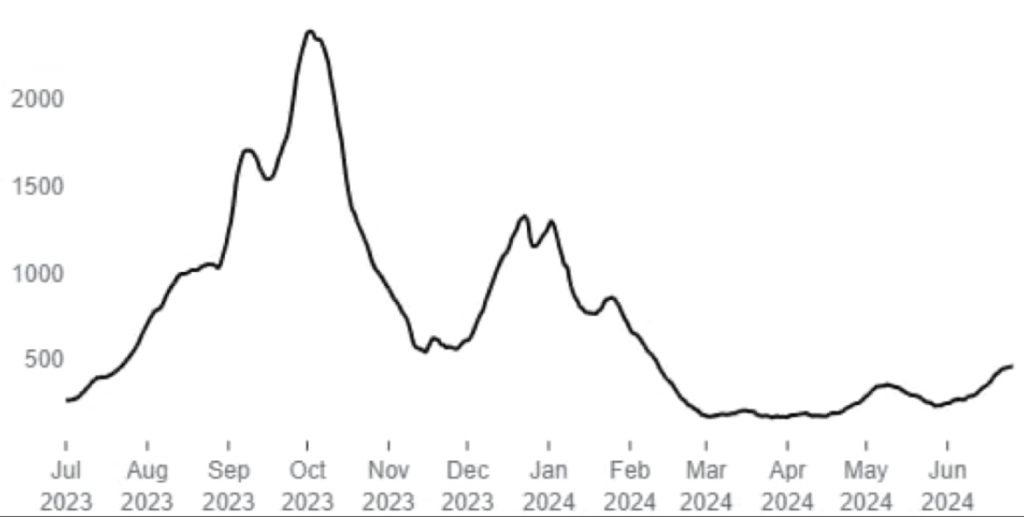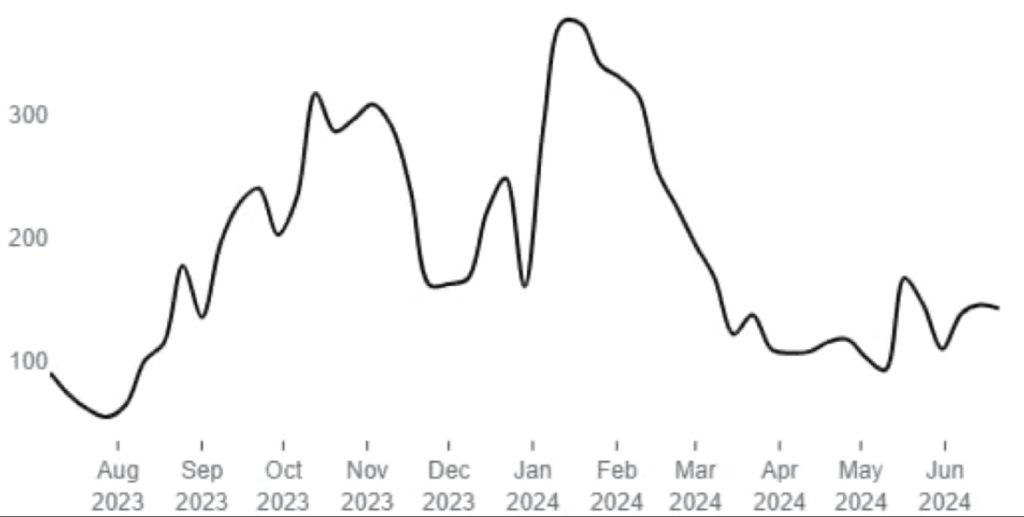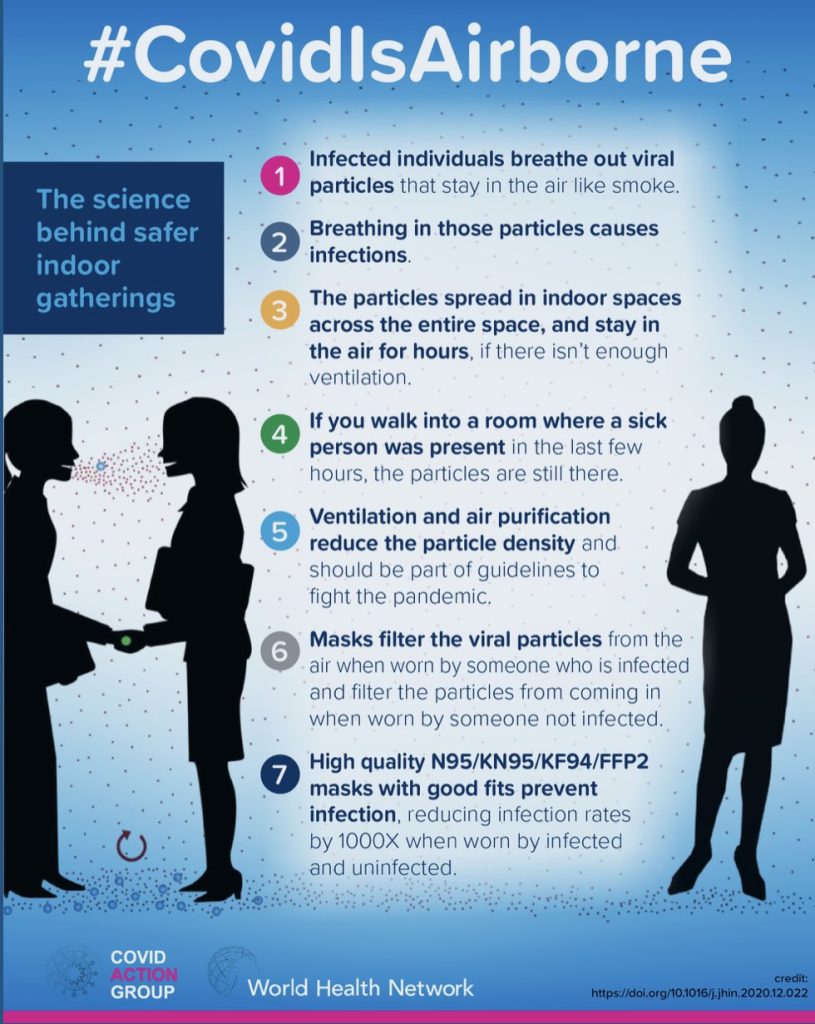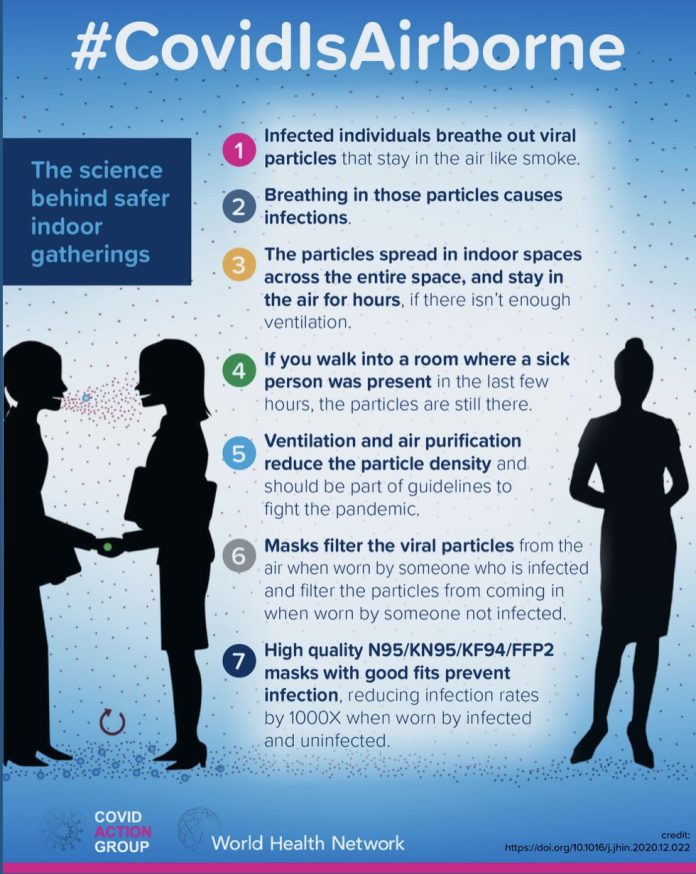According to the latest figures from the UK Health Security Agency, Covid cases have sharply increased by 33.5% in recent weeks. In the week leading up to 26 June 2024,
Weekly Cases
Up to 26 Jun 2024
3,230
Up to 26 Jun 2024
There has been an increase of 350 (12.2%) compared to the previous 7 days.350(12.2%)

Weekly Deaths
Up to 21 Jun 2024
143
7 days Up to 21 Jun 2024
There has been a decrease of -3 (-2.1%) compared to the previous 7 days.-3(-2.1%)

Healthcare
Patients admitted
Up to 29 May 2024
1,567
7 days Up to 29 May 2024
There has been a decrease of -151 (-8.8%) compared to the previous 7 days.-151(-8.8%)
However, with minimal testing currently being conducted, the actual figures could be significantly higher. Many of these cases are attributed to a new group of variants known as FLiRT, which originated from the JN.1 variant, a sub-variant of the Omicron strain.
Evolving Virus and Current Guidelines
Since the peak of the pandemic, the virus has continually evolved, bringing changes in both symptoms and the regulations around testing and self-isolation. Unlike the early days when people were required to isolate for at least 14 days, many are now treating it like any other illness and carrying on as normal. While strict rules have been relaxed, guidelines remain in place. So, what are the current symptoms in summer 2024, and what should you do if you suspect you’ve contracted the virus?
Symptoms
The NHS lists the following as potential Covid-19 symptoms in 2024:
- A high temperature or shivering (chills) – a high temperature means you feel hot to touch on your chest or back (you do not need to measure your temperature)
- A new, continuous cough – this means coughing a lot for more than an hour, or three or more coughing episodes in 24 hours
- A loss or change to your sense of smell or taste
- Shortness of breath
- Feeling tired or exhausted
- An aching body
- A headache
- A sore throat
- A blocked or runny nose
- Loss of appetite
- Diarrhoea
- Feeling sick or being sick
However, many of these symptoms are similar to other illnesses such as colds and flu. Most people recover within a few weeks, but for some, it can take longer. Covid-19 can also be a more serious illness for some individuals, meaning their symptoms may persist for a longer period.

What to Do If You Have Covid-19 Symptoms
If you’re experiencing Covid-19 symptoms, the NHS advises staying at home and avoiding contact with others if you have a high temperature or don’t feel well enough to carry out your normal activities. You can resume your regular activities once you feel better or no longer have a high temperature. If your child has mild symptoms like a runny nose, sore throat, or mild cough, and they feel well enough, they can attend school or childcare.
While there isn’t always a specific treatment for Covid-19, there are measures you can take to alleviate the symptoms. You should:
- Get lots of rest
- Drink plenty of water to avoid dehydration (your urine should be light yellow or clear)
- Take paracetamol or ibuprofen if you feel uncomfortable
- Try having a teaspoon of honey if you have a cough – do not give honey to babies under 12 months
- Try turning the heating down or opening a window to help with breathlessness
- Breathe slowly in through your nose and out through your mouth, with your lips together like you’re gently blowing out a candle
- Sit upright in a chair to help with breathlessness
- Relax your shoulders, so you’re not hunched, to help with breathlessness
- Lean forward slightly – support yourself by putting your hands on your knees or on something stable like a chair to help with breathlessness
You should not:
- Lie on your back if you have a cough – lie on your side or sit upright instead
- Use a fan to cool your room as it may spread the virus
- Panic if you’re feeling breathless – this can make it worse
What to Do If You Have Tested Positive for Covid
You are no longer required to do a Covid-19 rapid lateral flow test if you have symptoms. However, if you or your child have tested positive for Covid-19:
- Try to stay at home and avoid contact with other people for three days after the day the test was taken if you or your child are under 18 years old – children and young people tend to be infectious to other people for less time than adults
- Try to stay at home and avoid contact with other people for five days after the day you take your test if you are 18 years old or over
- Avoid meeting people who are more likely to get seriously ill from viruses, such as people with a weakened immune system, for 10 days after the day you took your test
Who Can Get a Free Lateral Flow Covid Test?
Free lateral flow Covid tests are no longer available for most people. However, if you have a health condition which makes you eligible for Covid-19 treatment, you may still be able to get free Covid-19 rapid lateral flow tests from the NHS. You could also qualify if you are employed in healthcare settings or a hospice.
For those who wish to get tested but are not eligible for free rapid lateral flow tests, they will need to cover the cost themselves. Rapid lateral flow tests can be purchased from certain pharmacies and retailers, either in-store or online.
KEEP US ALIVE and join us in helping to bring reality and decency back by SUBSCRIBING to our Youtube channel: https://www.youtube.com/channel/UCQ1Ll1ylCg8U19AhNl-NoTg AND SUPPORTING US where you can: Award Winning Independent Citizen Media Needs Your Help. PLEASE SUPPORT US FOR JUST £2 A MONTH https://dorseteye.com/donate/







